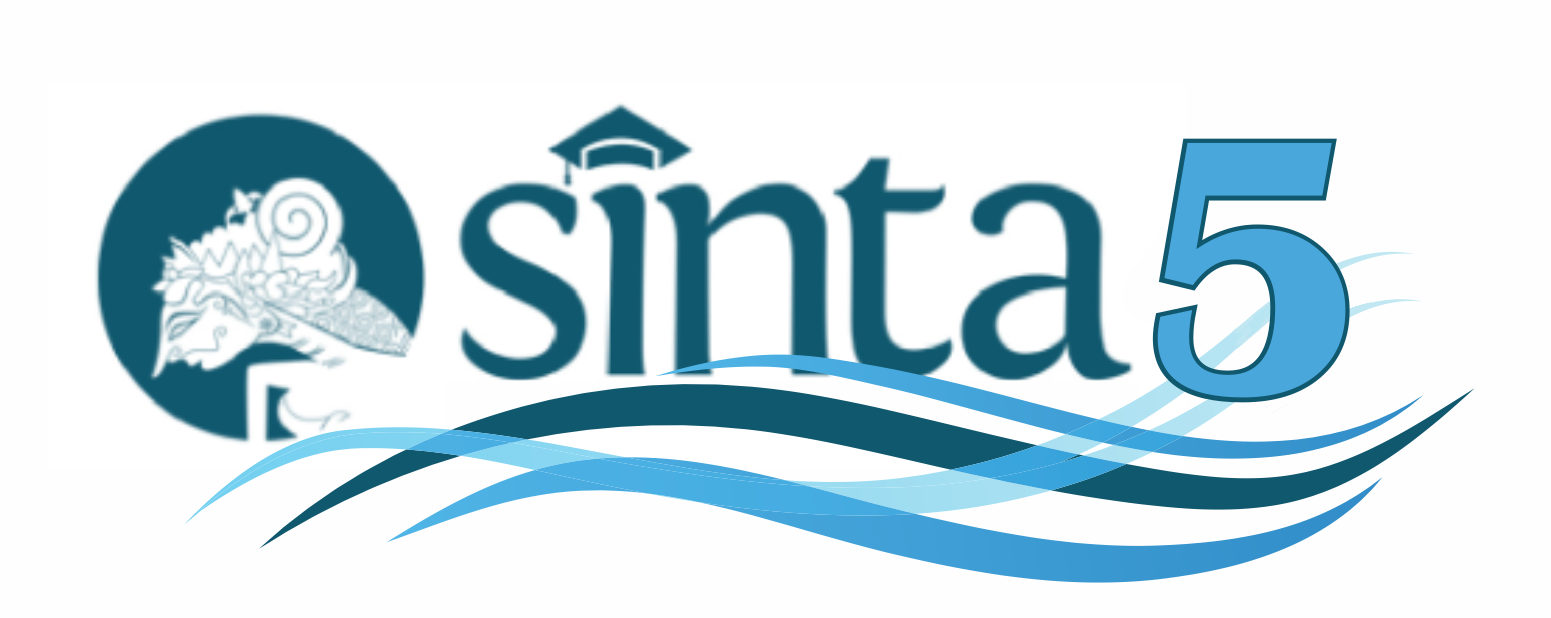SKRINING POTENSI ANTIJAMUR DARI JAMUR SIMBION SPONS TERHADAP JAMUR Trichophyton Sp.
DOI:
https://doi.org/10.31957/acr.v4i2.2816Abstract
Sponges are marine organisms that are filter feeders so that they become a habitat for microorganisms. Microorganisms symbiont and sponge produce secondary metabolites as self-protection mechanisms which are then used to find active compounds that are useful for medicine (pharmacology). The aim of this study was to isolate the active fraction of the fungal symbiont sponge and Characterization mikroskopiks of fungal symbionts sponge which has bioactivity as antifungals against Trichophyton sp. Sponge was taken from Opiaref Sea, Biak Numfor, Papua. Fungal symbiont of sponges was isolated by direct plate method. Purification of fungal symbiont was conducted by streak-plate method. Bioactivity assay of fungal symbiont sponges against Trichophyton sp. was conducted by agar diffusion method. Purification of bioactive compound was conducted by separatory funnel, TLC and OCC. Characterization of fungal symbionts sponge by mikroskopiks. Fungal symbiont from sponge C1K1 has best bioactivity as antifungal against Trichophyton sp. are fungi with the isolates MT.C12 and MT.C14. Isolation of bioactive compound obtained 2 fractions that best in inhabiting fungi Trichophyton sp. Diameter of inhibition zone of MT.C12-1-6 (13,44 mm) and MT.C14-1-4 (7,43 mm). TLC visualization with vanilin sulfuric acid indicated that MT.C12-1-6 and MT.C14-1-4 fraction form pink spots. Based on the color formed on both fractions containing alkaloids. Alkaloids are compounds that have biological activity of and provide certain physiological effects on organism.
Downloads
References
Adegoke, A.A. dan Adebayo-tayo, B.C. 2009. Antibacterial activity and phytochemical analysis of leaf extracts of Lasienthera africanum. African Journal of Biotechnology. 3(3): 156-161.
Alexopoulus, C.J. dan Mims, C.W. 1979. Introductory Mycology. Third Editon. John Wiley & Sons, Inc.USA. hal. 561.
Alfiah, R.R., Khotimah, S. dan Turnip, N. 2015. Efektivitas Ekstrak Metanol Daun Sembung Rambat (Mikania micrantha Kunth) Terhadap Pertumbuhan Jamur Candida albicans. Protobiont. 4(1):52-57.
Bugni, T. S., dan Ireland, C.M. 2004. Marine derived fungi: a chemically and biologically diverse group of microorganisms. Nat. Prod. Rep. 21:143–163.
Burgess, J.G., K.G. Boyd., E. Armstrong., Z. Jiang., L.Yan., M. Berggre., U. May., T. Pisacane., Granmo, A. dan Adams, D. R. 2003. The Development of a marinenatural product-based antifouling paint. Biofouling, Suppl. 197-205.
Chehri, K., Salleh, B., Yli-Matttila, T., Reddy, K.R.N. dan Abbasi, S. 2011. Molecular Characterization Of Pathogenic Fusarium Species In Cucurbit Plants From Kermanshah Province, Iran. Saudi Journal of Biological Science. 18:341-351.
Cimpoui, C. 2006. Analysis of Some Natural Antioxidants by Thin-Layer Chromatography and High Performance Thin-Layer Chromatography. J. Liquid Chrom. Tech. 29:1125-1142.
Djuanda, A. 2011. Ilmu Penyakit Kulit dan Kelamin. Edisi 6. Fakultas Kedokteran Universitas Indonesia. Jakarta. p. 3-4, 7-8.
Fajarningsih, N.D., A. Pratitis., T. Wikanta dan E. Chasanah. 2012. Bioprospeksi Kapang yang berasosiasi dengan Biota Laut Asal Kepulauan Seribu Sebagai Antitumor T47D dan HepG2. JPB. Perikanan. 7(1):21-30.
Gandjar, I. Samson,. A.R. Oetari dan A. Santoso, I. 2006. Mikologi: Dasar dan Terapan. Umum.Yayasan Obor Indonesia. Jakarta. hal. 234.
Gholib, D. dan Darmono. 2009. Skrining ekstrak tanaman sebagai anti fungi pada kapang dermatofit Trichophyton mentagrophytes secara in vitro. Prosiding Seminar Nasional dan Pameran Pengembangan Teknologi Tanaman Obat dan Aromatik. Pusat Penelitian dan Pengembangan Perkebunan Balai Penelitian Tanaman Obat dan Aromatik, Bogor. 537-541.
Harborne, J.B. 1987. Metode Fitokimia : Penuntun Cara Modern Menganalisis Tumbuhan. Institut Teknologi Bandung, Bandung. (diterjemahkan oleh Kosasih Padmawinata dan Iwang Soediro).
Ilyas, M. 2007. Isolation and identification mould micoflora inhabiting plant leaf litter from Mount Lawu, Surakarta, Central Java. Biodiversitas. 8(2): 105-110.
Kelecom, A. 2002. Secondary metabolites from marine microorganisms. An. Acad. Bras. Cienc. 74(1):151–170.
Madigan, M.T. dan Martinko J.M. 2006. Brock: Biology of Microorganism. Pearson Education International.
Muniarsih, T. 2003. Metabolit Sekunder dari Spons Sebagai Bahan Obat-obatan. Oseana. 28(3):27-33.
Nyiredi, S.Z. dan K. Glowniak. 2001. Planar Chromatography in Medicinal Plant Research. In Planar Chromatography. Springer Scientific Publisher.
Ozdemir, G., N.U. Karabay, Meltem, C.D. dan Baris,P. 2006. Antimicrobiol Activities of Volatile Component and Various Extracts of Dictyopters membranaceae and Cystoseira barbata From the Coast of Izmir. Turkey. Pharmacea. Biol. 44(3):183-188.
Radjasa, O.K., T. Martens, H.P. Grossart, T. Brinkoff, A. Sabdono dan M. Simon. 2007. Antagonistic activity of a marine bacterium Pseudoalteromonas luteoviolacea TAB4.2 associated with coral Acropora sp. J. Biol. Sci.2:239-246.
Rachmat, R. 2007. Spons Indonesia Kawasan Timur, Keragaman, Distribusi, Kelimpahan dan Kandungan Meatbolit Sekundernya. Oseanologi dan Limnologi di Indonesia. 33:123–138.
Rateb, M.E. dan Ebel, R. 2011. Secondary metabolites of fungi from marinehabitats. Nat Prod Rep. 28:290–344.
Rahayu, T. dan Rahayu, T. 2009. Uji Antijamur Kombucha Coffee terhadap Candida albicans dan Tricophyton mentagrophytes. Jurnal Penelitian Sains & Teknologi. 10(1):10–17.
Samsons, R.A., E.S. Hoekstra dan J.C. Frisvad. 2004. Introduction to food and airborne fungi. 7th ed. Centraalbureau voor Schimmelcultures, Utrecht. 389 hlm.
Song, M., Yun, H.Y. dan Kim, Y.H. 2014. Antagonistic Bacillus Species As a Biological Control of Ginseng Root Rot Caused by Fusarium cf. Incarnatum. J. Ginseng Res. 38:136-145.
Seifert, K. 1996. Fusarium Interactive Key. Agri-Food and Agroalimentaire. Canada. 1-65pp.
Strobel, G. and Daisy, B. 2003. Biosprospecting for Microbial Endophytes and Their Natural Products. Microbiol and Mol. Biol. 67:491-502.
Sudarmadji, S., B. Haryono dan Suhardi. 2007. Prosedur Analisa Bahan Makanan dan Pertanian. Liberty, Yogyakarta.
Trianto, A., Ambariyanto, R. Murwani. 2004. Skrining Bahan Antikanker pada Berbagai Jenis Sponge dan Gorgonian terhadap L1210 Cell Line. Ilmu Kelautan. 9(3):120-124.
Trianto, A., I. Hermawan, T. Suzuka, J. Tanaka. 2011. Two New Cytotoxic Candidaspongiolides from an Indonesian Sponge. ISRN Pharmaceutics. 6p.
Voight R. 1995. Buku Pelajaran Teknologi Farmasi, Edisi V. Diterjemahkan oleh Soendani Noerono. Gadjah Mada University Press.Yogyakarta.
Downloads
Published
Issue
Section
License
Authors who publish with this journal agree to the following terms:
- Authors retain copyright and grant the journal right of first publication with the work simultaneously
licensed under a Creative Commons Attribution-NonCommercial-ShareAlike 4.0 International License
that allows others to share the work with an acknowledgement of the work's authorship and initial
publication in this journal. - Authors are able to enter into separate, additional contractual arrangements for the non-exclusive
distribution of the journal's published version of the work (e.g., post it to an institutional repository
or publish it in a book), with an acknowledgement of its initial publication in this journal. - Authors are permitted and encouraged to post their work online (e.g., in institutional repositories or
on their website) prior to and during the submission process, as it can lead to productive exchanges,
as well as earlier and greater citation of published work (See The Effect of Open Access).




















